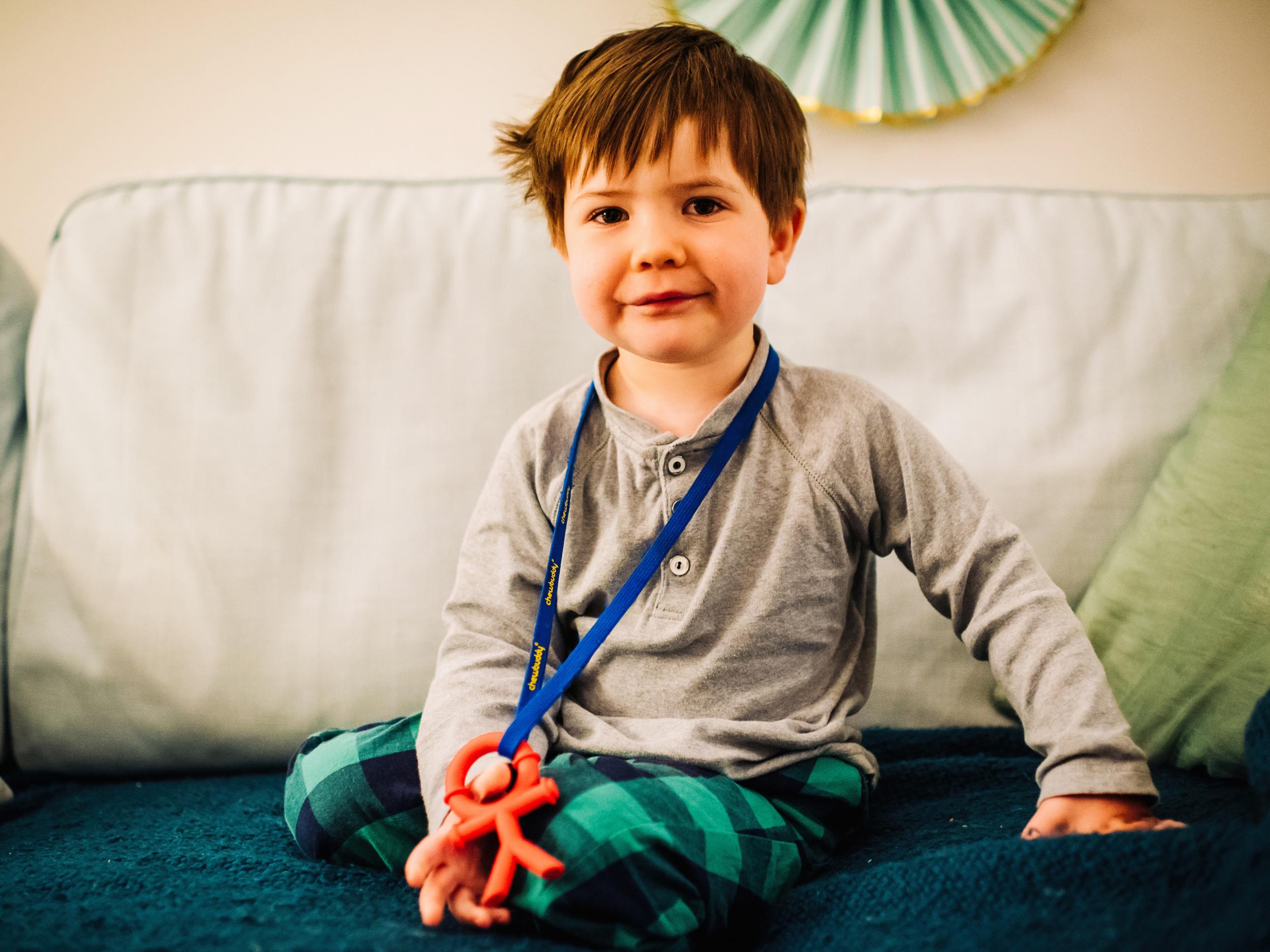Young boy diagnosed with dementia loses ability to say his first words
Mother devises 'bucket and spade' list so George can have as many experiences as possible before his condition deteriorates further

Your support helps us to tell the story
From reproductive rights to climate change to Big Tech, The Independent is on the ground when the story is developing. Whether it's investigating the financials of Elon Musk's pro-Trump PAC or producing our latest documentary, 'The A Word', which shines a light on the American women fighting for reproductive rights, we know how important it is to parse out the facts from the messaging.
At such a critical moment in US history, we need reporters on the ground. Your donation allows us to keep sending journalists to speak to both sides of the story.
The Independent is trusted by Americans across the entire political spectrum. And unlike many other quality news outlets, we choose not to lock Americans out of our reporting and analysis with paywalls. We believe quality journalism should be available to everyone, paid for by those who can afford it.
Your support makes all the difference.A four-year-old boy has become one of the youngest children in the country to be diagnosed with dementia.
George Young has Batten Disease, a fatal genetic disorder of the nervous system that leaves children suffering cognitive impairment, seizures, and progressive loss of sight.
A symptom of the condition is dementia, which has slowly robbed him of his language and motor skills.
George suffers from CLN8, a rare form of the disease, which has 14 different variants.
He is one of just two boys in the UK to have the number eight form of the condition.
George has already lost the ability to speak, after learning his first words, “mama” and “daddy”.
His mother Claire Young, 35, has devised a "bucket and spade list" so George can have as many experiences as possible before his condition deteriorates further.
Depending on the age of onset and the variant of the condition, Batten disease is fatal and death may occur anywhere between early childhood and young adulthood.
Ms Young, a solicitor from Kenilworth, Warwickshire, said: “I wasn’t aware of childhood dementia, I didn’t know it could happen to little ones at all and you especially don’t expect it to happen to one of your own.
“He developed normally as a little boy, he hit all his major milestones.
“He did have a speech delay when he was two, but he did have a few words so it wasn’t a major concern.
“Despite not being able to speak now, George is such fun, full of mischief, he loves being in company and is just a lovely little boy to be around.”
George started having seizures at nursery in October 2016 and was admitted to hospital. There, doctors ran tests and diagnosed him with epilepsy.
But clinicians were suspicious because of some of his other symptoms and in February 2017, at the age of three, he was diagnosed with Batten disease.
“It would be an understatement to say it turned our world upside down,” Ms Young said.
“Last year I was just in this sort of haze for ages, accepting that news about your child, not knowing what the future holds for him.
“It’s been incredibly difficult but it will change me as a mum and as a person forever I’m sure.”
Currently, there is no treatment for George’s variant and his condition is expected to deteriorate rapidly.
Ms Young added: “It’s a massive life lesson and it is heartbreaking to know that I am going to lose him, but we are trying to make the most of it.”
Speaking about the "bucket and spade" list - a host of activities she wants George to experience before he is too unwell - she said: “It’s a list of things I would have done with him in years to come but won’t have the opportunity, so I want to try and do as much of that with him while I have the chance.”
So far George has had a helicopter ride, driven in a fancy sports car, been on the roller-coaster at Peppa Pig world and met soldiers at Buckingham Palace. “There is a theme with all these things. He loves the speed – it brings out such emotion in him,” she said.
“Because he doesn’t have any language it’s so important to hear him laugh, express himself and get excited.
“All these amazing things help him do that and so I want him to do as many of those as possible.” The pair have plans to visit Dippy the Dinosaur at Birmingham Museum, go indoor skydiving as well as a tobogganing trip in Europe, arranged by the Make-a-Wish charity.
Over the past year George has lost his ability to stand, walk and communicate. He has a postural chair which he sits in to support him and a bath seat to keep him safe in the water.
Ms Young said: “A routine is very important for children with this condition.
“It helps keep them calm and stable and it helps their expectation of what’s about to happen.
“It’s quite normal to an extent, getting up, having breakfast and going to school, but there are just medical bits to do.
The Batten Disease Family Association (BDFA), which supports families across the UK, organises an annual conference day which gives families the opportunity to meet in person.
Harriet Lunnemann, BDFA spokeswoman, said: “We help the families to understand what this means for their child or young person and also work with professionals to raise awareness of childhood dementia.
“We enable professionals to find strategies to care and support those with the complexity of childhood dementia and Batten disease.”
The BDFA estimate there are around 150 children and young people in the UK who have Batten disease.
Join our commenting forum
Join thought-provoking conversations, follow other Independent readers and see their replies
Comments